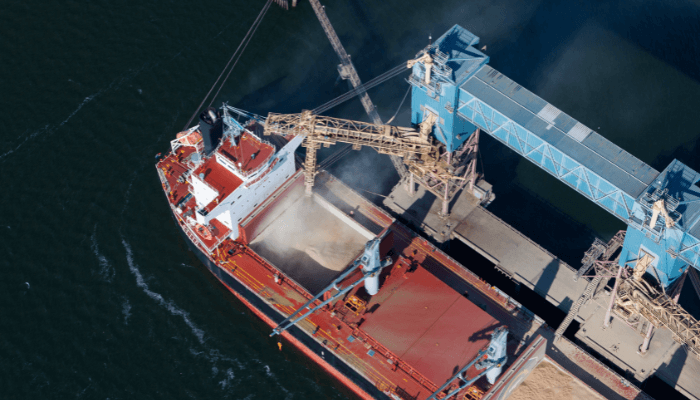ITF Seafarers and Dockers Sections were vocal in their support for ver.di dock workers when unions met in London in early July. Maritime unions are mobilizing support for German ITF affiliate ver.di as the union battles port companies for an inflation-proof pay deal covering 12,000 dock workers.
Union leaders gathered in London expressed their solidarity with Germany’s dockers following recent strike action. ver.di is pushing for an annual, automatic inflation adjustment to be inserted into a renewed collective agreement with 58 ports and terminals.
“Rising prices for essential living expenses such as energy and food have become an unsustainable burden on German workers, especially for those lower paid workers,” said head of ver.di’s Maritime Section, Maya Schwiegershausen-Güth.
She said the employers, represented by the Central Association of German Seaport Companies (ZDS), have so far rejected the principle of inflation protection in talks with the union.
“These port companies plan to leave their staff alone to deal with the consequences of rising prices. They are willing to see dockers’ wages go backwards, eaten away by inflation. We cannot accept this, especially after all that dock workers have done for the employers and the common good.”
“Throughout the pandemic, dock workers have shown extraordinary commitment to their employers and to the German economy. For more than two years they have put up with family-impacting flexible work schedules, longer working hours, and rising workloads. Under all this pressure, dock workers have sacrificed,” said Schwiegershausen-Güth.
Now it was time for employers to recognize these efforts through a fair pay agreement, she said. “All of the employers and politicians who heaped praise on key workers during the pandemic should now be vocal in supporting our claim for fair inflation protection.”
“Appreciation without renumeration is meaningless – nice words will not pay the rent,” she added.
Inflation protection: Industry norm
ITF Dockers’ Section vice-chair Niek Stam said ITF and ETF dockers’ unions representing more than 500,000 workers were united in their support for ver.di as it sought an inflation-proof pay deal.
“What the German dockers are pushing for is not unreasonable, nor is it uncommon in our industry. All workers have a right to protect the wages that they bargain for from inflation,”
Stam, who is also leader of Dutch dockers’ union FNV Havens, said automatic inflation adjustment mechanisms had existed for decades in competitive ports’ agreements, such as those in Rotterdam and Antwerp.
“The shipping, port and gas companies are making record profits, pushing up prices for everyone else. They are the ones causing much of this inflation, not the workers. So why should the workers be punished for it?” he asked.
“Dockers move the world – we do not go backwards. We stand with our ver.di sisters and brothers.”
Source: https://maritimefairtrade.org/german-dock-workers-strike-for-inflation-protection/






